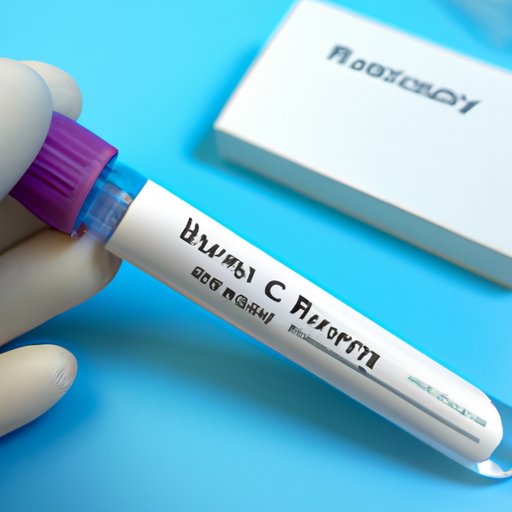I. Introduction
RSV (Respiratory Syncytial Virus) is a common infection that affects people of all ages, particularly children. RSV testing is essential for identifying the virus early, monitoring disease progression, and preventing its spread to others. Early intervention through testing can lead to early treatment and better recovery outcomes. This article will explore how to test for RSV and what the different types of RSV tests entail.
II. Importance of RSV Testing
RSV is a highly contagious virus that can cause respiratory infections. According to the CDC, RSV is responsible for nearly 58,000 hospitalizations annually in children under five years old. Testing for RSV is crucial in preventing the spread of the virus, especially in hospitals and other healthcare settings. Testing also helps identify the virus early, thus allowing for early intervention through effective treatment options.
III. Signs and Symptoms of RSV
RSV can cause flu-like symptoms such as coughing, sneezing, and a runny nose. In babies and young children, RSV can cause severe respiratory symptoms such as wheezing and difficulty breathing. Adults may experience fever, headaches, and body aches in addition to respiratory symptoms. Testing for RSV is necessary if you experience severe symptoms, frequent symptoms, or prolonged symptoms.
IV. Different Types of RSV Tests
The most common types of RSV tests include rapid antigen tests and molecular tests. Rapid antigen tests, also known as rapid diagnostic tests (RDTs), detect viral proteins in the respiratory samples of patients. Molecular tests, also known as nucleic acid amplification tests (NAATs), detect RSV RNA in respiratory samples. Rapid antigen tests are faster and less expensive than molecular tests, but molecular tests are more accurate and sensitive. Depending on the age of the patient, clinical history and the severity of the symptoms, the doctor will decide which test is more appropriate. It is important to note that RSV testing can be done in a medical laboratory, but there are also on-site testing options available.
V. How the RSV Test is Performed
The RSV test involves collecting a respiratory sample from the patient, which can be done using a nasal swab, throat swab, or nasopharyngeal aspirate. The healthcare provider will use a special swab to collect the sample. The sample is then sent to a laboratory for testing. The process takes around 15-30 minutes for rapid antigen tests, while molecular tests may take longer. Healthcare providers will also wear proper PPE (personal protective equipment) during the RSV testing procedure to prevent the spread of infection.
VI. Preparation for an RSV Test
If you are scheduled for an RSV test, it is important to follow the preparation guidelines provided by the healthcare provider to ensure the accuracy of test results. Patients may be asked to fast for a few hours before the test or avoid certain medications that may interfere with test results. It is important to stay hydrated for the best results. It is also essential to avoid close contact with other sick people as much as possible.
VII. Interpreting RSV Test Results
RSV test results will be either positive or negative, meaning that the virus is detected or not detected, respectively. Positive results mean that the patient has the RSV virus, and the healthcare provider will advise on the next steps in treatment and prevention. Treatment may involve antiviral medications and supportive care. Prevention strategies involve vaccinations and following proper infection control procedures to reduce the spread of the virus.
VIII. Home RSV Tests
Home RSV test kits are becoming increasingly available to the public. These test kits allow patients to collect a respiratory sample in the comfort of their homes and mail the kit to a laboratory for testing. However, the accuracy and reliability of these tests may vary, and they may not be as sensitive as laboratory-based tests. To gain accurate results when using a home RSV test kit, it is important to follow the instructions carefully and send the sample to a reputable laboratory for testing.
IX. Conclusion
RSV testing is vital in the early diagnosis, intervention and treatment of the virus. There are different types of RSV tests available, and the healthcare provider will advise which test is best based on the age, clinical history and severity of symptoms. Proper preparation for the RSV test is essential to ensure the accuracy of test results. Home RSV test kits may be an alternative for some patients, but it is important to ensure the accuracy and reliability of the test before relying on the results. RSV testing is a proactive step towards maintaining good health, preventing the spread of the virus, and reducing the risk of severe complications.
